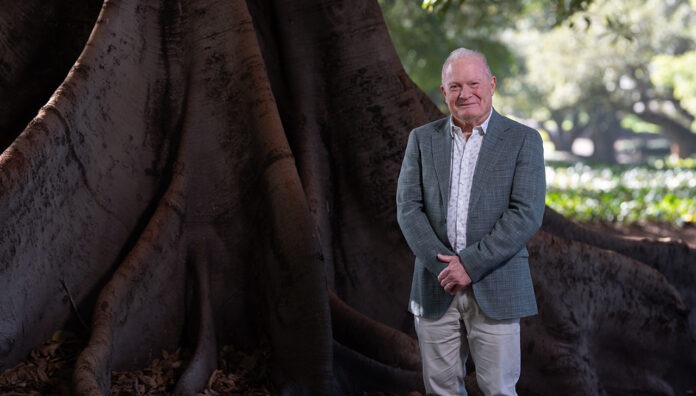A lifelong commitment to helping others has taken Emeritus Professor Jeff Hughes FPS, PSA’s 2025 Symbion Lifetime Achievement Award recipient, from the hospital ward to the lecture theatre – and into digital health.

For more than 4 decades, Emeritus Prof Hughes has been influential in every facet of Australian pharmacy life. From his home in Western Australia, he has helped shape clinical hospital practice, penned books and research papers, co-owned a community pharmacy, held leadership roles within PSA, led Curtin University’s School of Pharmacy and co-founded a digital health company.
His career began in 1979 at Royal Perth Hospital. ‘I loved it,’ he says. ‘Being on the wards, part of the team, seeing patients every day – you could really make a difference.’ The case of a patient with a dog bite particularly stands out. ‘They were talking about cutting the patient’s leg off,’ he recalls. ‘I realised she wasn’t on antibiotics that would cover the organisms that come from dogs. She ended up walking out of the hospital.’
An academic path
In 1996, Emeritus Prof Hughes joined Curtin University as a Senior Lecturer in pharmacology. Although initially planning to complete a PhD, he enjoyed mentoring students and wanted to share his real-world experiences in the classroom. At the same time, he became an accredited pharmacist and began conducting medicine reviews in aged care.
A desire to improve the way pharmacy was taught eventually led to his position as Head of School in 2009. He remained deeply involved in research, working with colleagues on topics ranging from adverse drug reactions to quality use of medicines. ‘You can’t do everything yourself,’ he says. ‘But if you surround yourself with the right people, they’ll help you be successful. They’ll drive you along and inspire you.’
From aged care to AI
It was a spirit of collaboration and curiosity that led Emeritus Prof Hughes into digital health.
Inspired by what he had observed while conducting medicine reviews, he joined forces with colleague and former student Dr Kreshnik Hoti and Dr Mustafa Atee to develop a better alternative to paper-based pain assessment tools.
‘People with dementia were being given crushed up paracetamol tablets, which are incredibly bitter,’ he says. ‘It’s no surprise that the next time the spoon came out they became aggressive. I wanted to change pain management by improving pain assessment.’ The result is PainChek, an app now used in Australia, New Zealand, the United Kingdom and Canada, with more than 7 million pain assessments completed. ‘It’s not very often that you have a good idea that converts into the type of success we’ve had,’ he admits.
Curiosity makes the difference
Today, Emeritus Prof Hughes remains focused on what drew him to pharmacy in the first place: solving problems and helping people.
His advice to early career pharmacists is to find what interests you, join professional organisations, and be part of shaping the profession.
‘Curiosity is the thing that makes the difference,’ he says. ‘Everyone can remember things, but to be curious is to think, “I just saw something I don’t understand, I’d better look that up”.’
Now 67, he has no plans to slow down. Alongside expanding PainChek’s reach, he is working on another project involving the use of digital stethoscopes to diagnose coronary artery disease, and is the lead investigator on an NHMRC project looking at whether calcium channel blockers cause an increased risk of breast cancer. ‘Every day in pharmacy, you learn something new,’ he says. ‘That’s what keeps me going.’
Q&A
1. What is the one scope of practice change you would most like to see?
Independent, embedded pharmacists in residential aged care homes and general practice.
2. What advice would you give to your younger self?
If you maintain your curiosity then you will make a difference.
3. What pharmacist role do you see yourself performing in 2030?
I see myself conducting research into using AI as a tool to improve disease/symptom (for example heart disease and pain) diagnosis, detection and management.


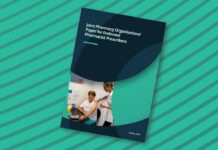
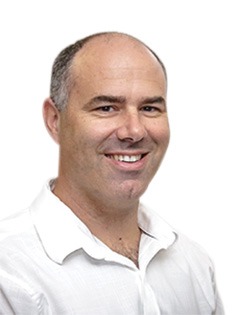 PSA Vice President Professor Mark Naunton MPS[/caption]
PSA Vice President Professor Mark Naunton MPS[/caption]


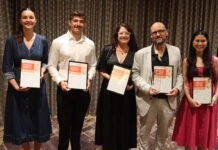

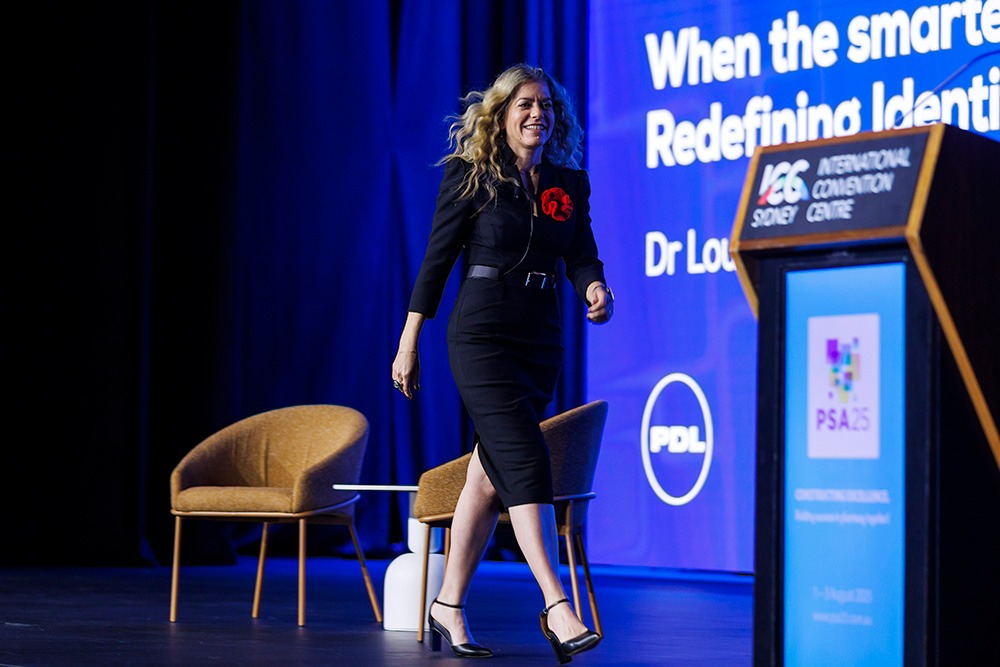 Dr Louise Schaper at PSA25[/caption]
Dr Louise Schaper at PSA25[/caption]
